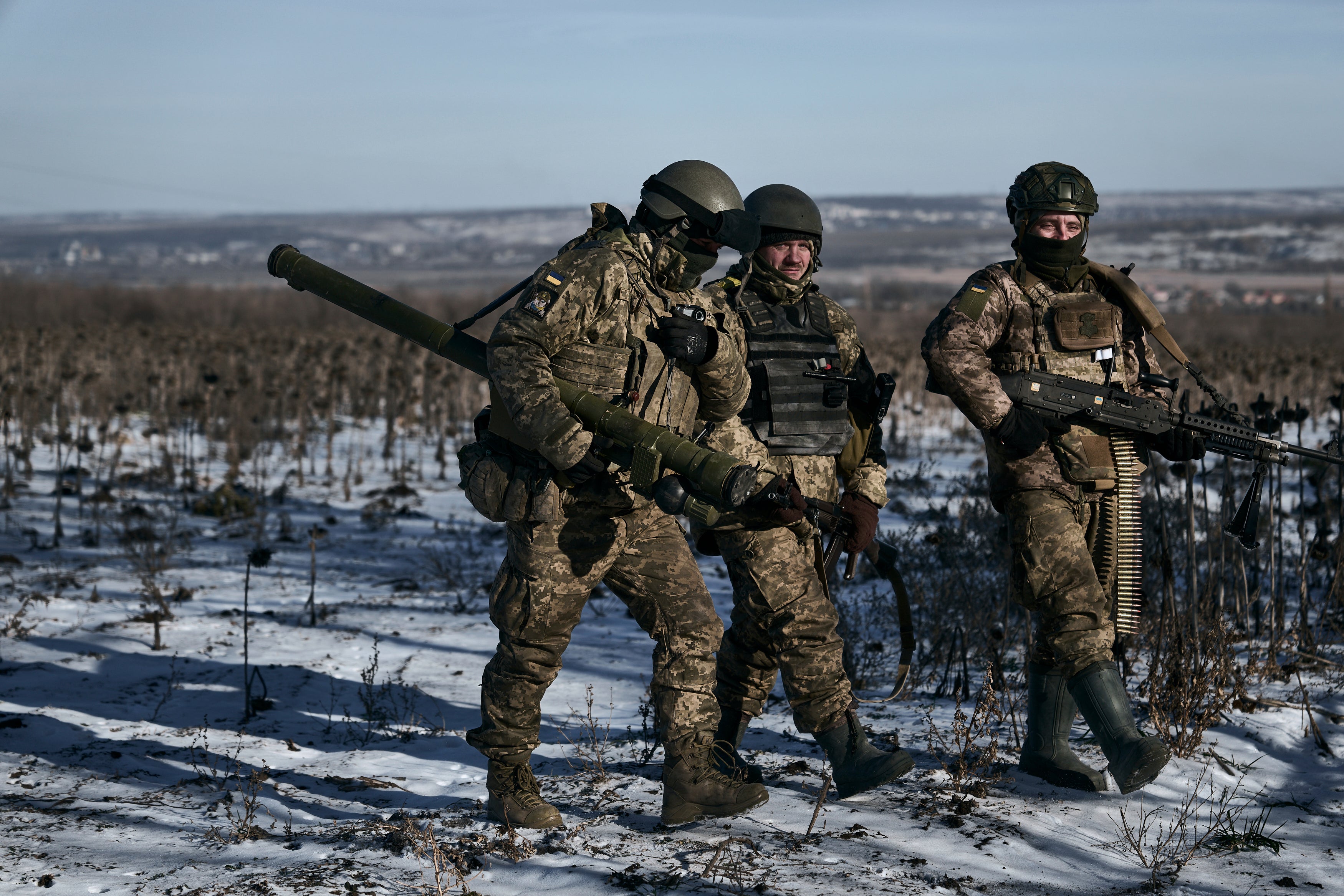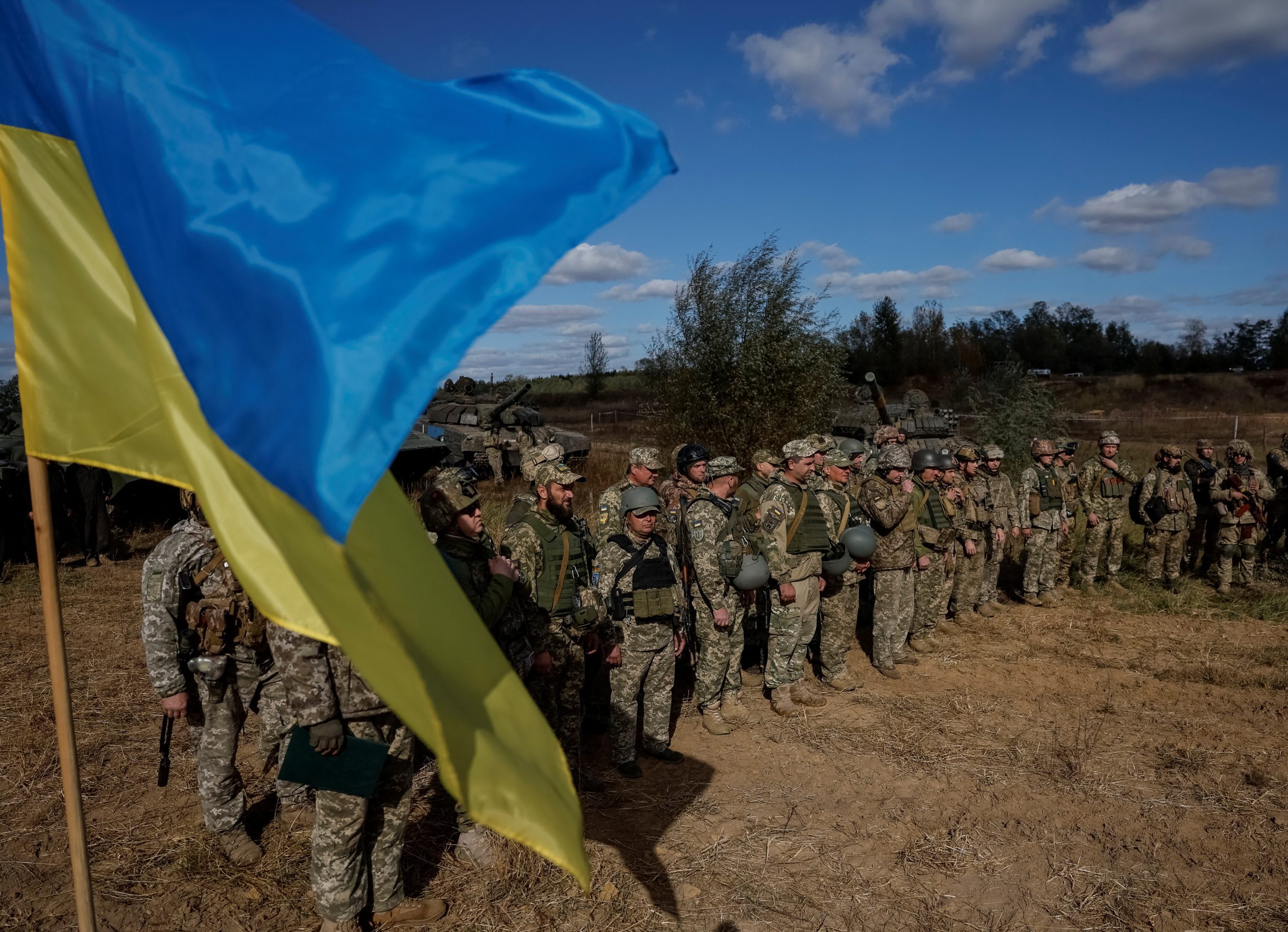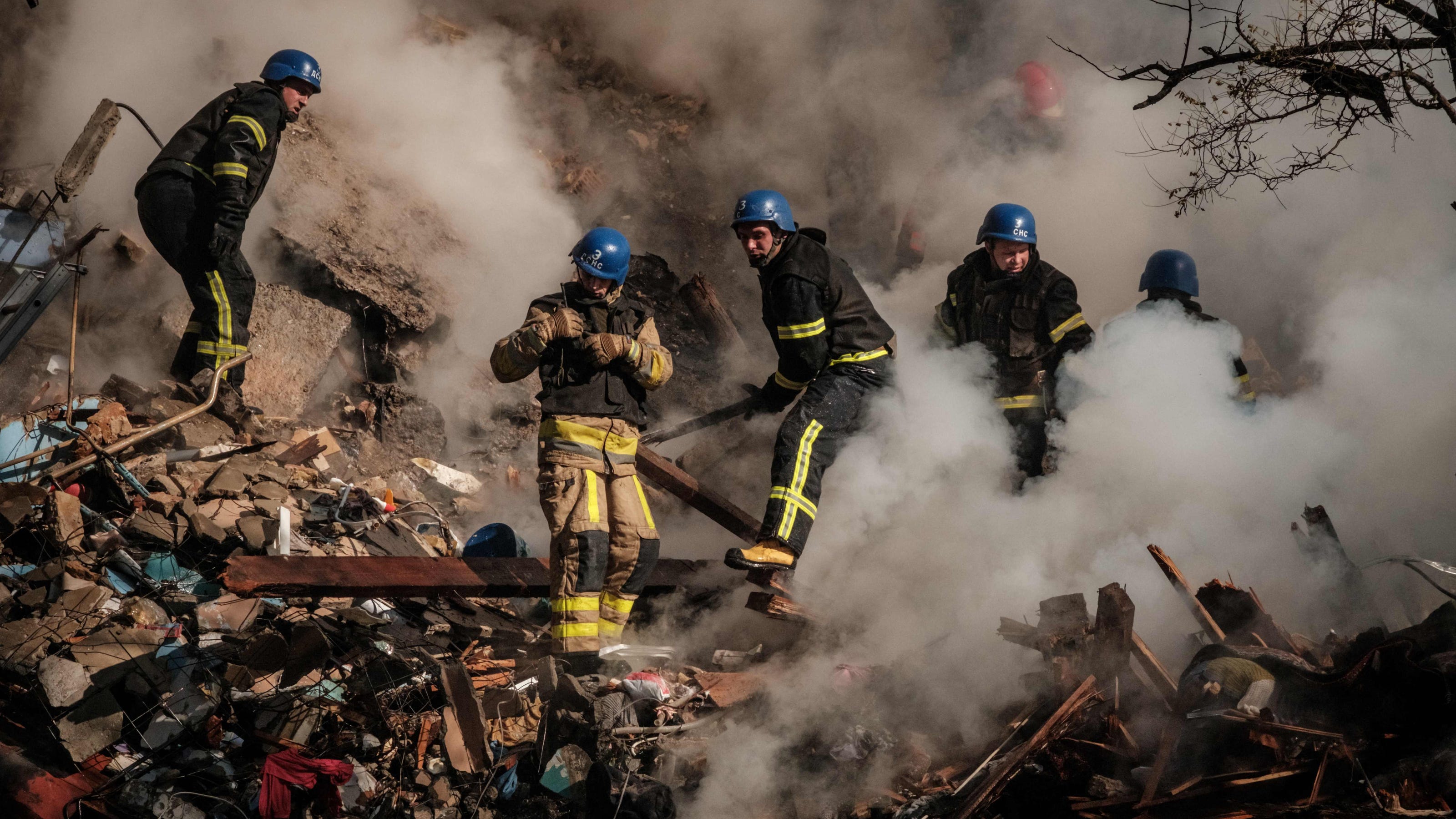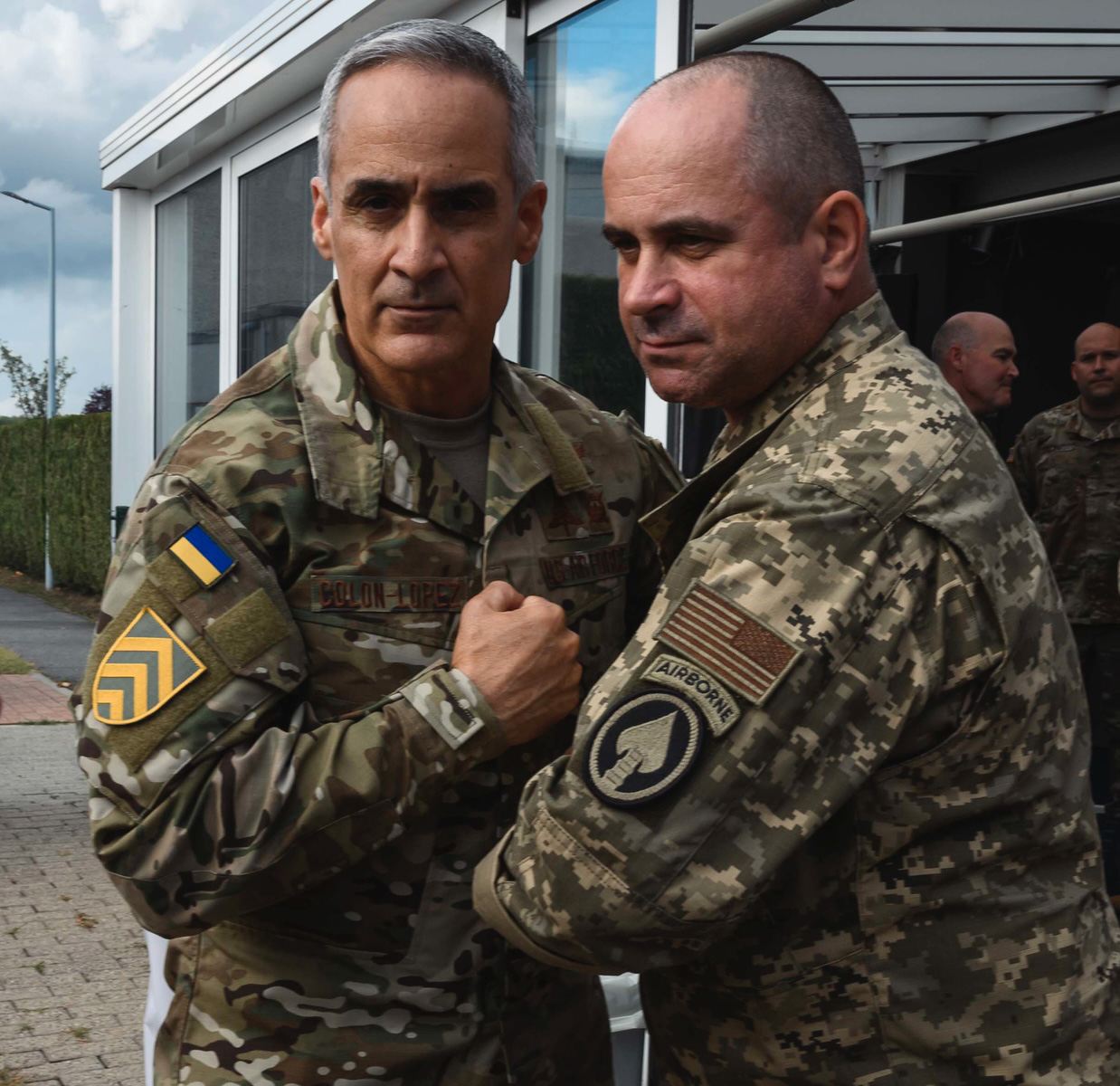Editor's Note: The Russia-Ukraine conflict has been ongoing since 2014 and has had a significant impact on the region and beyond. This guide will provide an overview of the conflict, its ongoing developments, and its geopolitical implications.
Our team of experts has analyzed the situation and compiled this guide to help you understand the key issues involved in the Russia-Ukraine conflict.
Key Differences or Key Takeaways
| Russia | Ukraine | |
|---|---|---|
| Capital | Moscow | Kyiv |
| President | Vladimir Putin | Volodymyr Zelenskyy |
| Population | 144.4 million | 44.1 million |
| GDP | $1.7 trillion | $155 billion |
| Military strength | World's second-largest military | World's 22nd-largest military |
Transition to main article topics
FAQ
The Russia-Ukraine Conflict: Ongoing Developments And Geopolitical Implications has raised several questions and concerns. This FAQ section provides answers to some of the most common inquiries.

Russia says it has captured the eastern town of Soledar | The Independent - Source www.independent.co.uk
Question 1: What are the primary motivations behind Russia's actions in Ukraine?
Russia's invasion of Ukraine is driven by a combination of factors, including historical grievances, security concerns, and geopolitical ambitions. Moscow claims it is defending Russian-speaking populations and preventing Ukraine from joining NATO. However, many observers believe that President Putin is pursuing a larger agenda of restoring Russian influence in the former Soviet sphere.
Question 2: What is the current status of the negotiations between Ukraine and Russia?
Negotiations between Ukraine and Russia have yielded limited progress. The two sides have met several times, but no significant breakthrough has been reached. The main obstacles are Ukraine's demand for the withdrawal of Russian troops and Russia's insistence on Ukraine's neutrality and recognition of the Russian annexation of Crimea.
This FAQ addresses some of the key concerns surrounding the ongoing conflict between Russia and Ukraine. It highlights the complexity of the situation and the challenges to finding a peaceful resolution.
Learn more about the latest developments and geopolitical implications of the Russia-Ukraine conflict by accessing our comprehensive report.
Tips
To stay up-to-date and comprehend the complexities of the Russia-Ukraine conflict, consider these essential tips:
Tip 1: Seek Reliable News Sources
Verify information from reputable and established news outlets. Avoid unverified or biased sources that may promote misinformation.
Tip 2: Understand Historical Context
The current conflict has roots in historical events and geopolitical dynamics. Research the history of the region to gain a comprehensive understanding of the situation.
Tip 3: Monitor Official Statements
Pay attention to official announcements from governments, international organizations, and military leaders. These statements provide important updates and insights.
Tip 4: Analyze Expert Commentary
Seek out analysis from experts in international relations, military affairs, and diplomacy. Their insights can help clarify complex developments and provide a deeper understanding.
Tip 5: Consider Geopolitical Implications
The conflict has far-reaching geopolitical consequences. Consider its potential impact on regional stability, global relations, and the global economy.
Summary:
By following these tips, you can gain a more informed perspective on the Russia-Ukraine conflict and its implications. Stay vigilant, seek reliable sources, and engage in critical analysis to stay abreast of this ongoing and evolving situation.
Russia-Ukraine Conflict: Ongoing Developments And Geopolitical Implications
The Russia-Ukraine conflict has far-reaching geopolitical implications. Its ongoing developments impact regional stability, global security, and international diplomacy. Understanding the conflict's key aspects is crucial for informed analysis and decision-making.

The state of Russia's war on Ukraine as it nears 2024 - Atlantic Council - Source www.atlanticcouncil.org
- Military Confrontation: Ongoing armed conflict with significant casualties and territorial changes.
- Humanitarian Crisis: Mass displacement, civilian suffering, and destruction of infrastructure.
- Economic Sanctions: Global sanctions targeting Russia's economy, trade, and financial system.
- Diplomatic Isolation: Suspension of diplomatic relations, international condemnations, and expulsion from organizations.
- Energy Security: Disruptions to global energy markets, leading to price increases and supply concerns.
- Global Power Dynamics: Shifts in international alliances, heightened tensions between East and West, and the erosion of the global order.
These aspects are interconnected and have significant implications for the future of Europe, the stability of the international system, and the lives of millions of people. The conflict highlights the complex interplay between national interests, geopolitical competition, and the challenges of international cooperation.

Ukraine live updates: Kyiv rocked by Russian drone attacks - Source www.usatoday.com
Russia-Ukraine Conflict: Ongoing Developments And Geopolitical Implications
The Russia-Ukraine conflict is a complex and ongoing geopolitical issue that has far-reaching implications. The conflict began in 2014 with the annexation of Crimea by Russia and has since escalated into a full-scale war. The conflict has had a significant impact on the region and has also raised concerns about the global security order.
NCOs Key to Ukrainian Military Successes Against Russia > U.S - Source www.defense.gov
One of the key geopolitical implications of the conflict is the potential for further escalation. The conflict has already resulted in a significant loss of life and property, and there is concern that it could escalate into a wider war between Russia and Ukraine, or even a broader conflict involving other countries in the region or NATO. The conflict has also raised concerns about the future of European security and the role of Russia in the region.
Another geopolitical implication of the conflict is the potential impact on the global economy. The conflict has already had a negative impact on the economies of Russia and Ukraine, and there is concern that it could have a wider impact on the global economy. The conflict has also raised concerns about the security of energy supplies in Europe, as Russia is a major supplier of oil and gas to the region.
The Russia-Ukraine conflict is a complex and ongoing geopolitical issue that has far-reaching implications. The conflict has the potential to escalate into a wider war, which could have devastating consequences for the region and the world. The conflict has also raised concerns about the future of European security and the role of Russia in the region.
| Consequence of Russia-Ukraine Conflict | Geopolitical Implication |
|---|---|
| Economic sanctions on Russia | Weakening of the Russian economy |
| Increased military spending in Europe | Strengthening of NATO and the European Union |
| Deterioration of relations between Russia and the West | Increased risk of a new Cold War |
Conclusion
The Russia-Ukraine conflict is a complex and ongoing geopolitical issue that has far-reaching implications. The conflict has the potential to escalate into a wider war, which could have devastating consequences for the region and the world. The conflict has also raised concerns about the future of European security and the role of Russia in the region. It is important to continue to monitor the conflict and to work towards a peaceful resolution.
The conflict has also highlighted the importance of international cooperation and the need to uphold the rule of law. The international community must continue to work together to support Ukraine and to hold Russia accountable for its actions. The conflict is a reminder that peace and stability cannot be taken for granted, and that we must all work to build a more just and equitable world.

إرسال تعليق